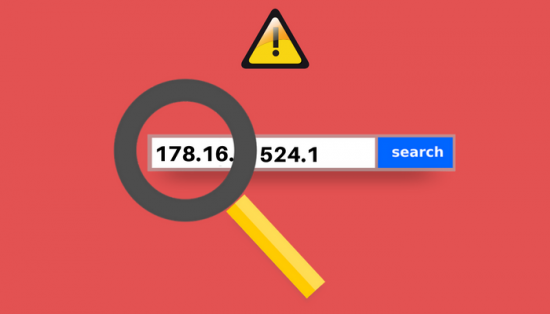
Although users of the Web are becoming increasingly aware of the dangers lurking in cyberspace, many aren’t familiar with the technicalities behind certain cyber hygiene practices. Most are, however, acquainted with the basic signs of a non-secure website. One tell-tale sign is the presence of a green security lock beside a website’s URL, which indicates that the site uses SSL/TLS. But aside from that, are there other ways to tell if a website is unsafe to visit? Enter IP reputation services.
IP reputation services are extremely effective tools that help identify IP addresses that have consistently been sending unwanted requests. So how does an IP address earn a “bad” or negative reputation? If an IP address is blacklisted, it often means suspicious activity like spam or viruses have been detected on the site linked to said IP address. This sort of information can be extremely useful to both users and organizations alike so they can take action against malicious traffic. Delving deeper, this blog post will cover some lesser known benefits of using IP reputation services:
Augment existing security solutions.
Organizations should not forgo investing in network and web application firewalls in lieu of an IP reputation service. By relying on publicly available IP lists, which are often outdated and not significantly comprehensive, organizations cannot block new and unknown threats and must deal with high instances of false positives. However, with an IP reputation service, companies can integrate a list of “blacklisted” IP addresses with existing security products (like a WAF) to enhance functionality.
Save traffic bandwidth and enhance performance.
 If a website is being frequently visited by fraudulent IPs, it can severely reduce the quality of service for actual legitimate traffic on the website. However, if blocking a significant portion of unwanted traffic is possible, then bandwidth and resource consumption is subsequently reduced. This reduction is possible with IP reputation services as the list of malicious IPs can be blacklisted to block unwanted traffic. This ultimately translates to a better service for all.
If a website is being frequently visited by fraudulent IPs, it can severely reduce the quality of service for actual legitimate traffic on the website. However, if blocking a significant portion of unwanted traffic is possible, then bandwidth and resource consumption is subsequently reduced. This reduction is possible with IP reputation services as the list of malicious IPs can be blacklisted to block unwanted traffic. This ultimately translates to a better service for all.
Reduce time needed to identify IP threats.
A major problem with malicious IPs is that these IP addresses may be part of a larger threat, like a botnet that sends spam or engages in other kinds of bad activity. There are typically 10,000 to 200,000 “zombies” in a single botnet, which are compromised accounts that take over host computers. It becomes difficult for organizations to identify these threats. Luckily, some IP reputation services can break down IP addresses into different categories like denial of service, spam sources, mobile threats, phishing, and so on. As a result, IT security administrators can easily identify threats by type and make better threat decisions.
Improve detection and increase security.
 Finally, by using IP reputations services, users are able to filter out sources that have been flagged for “bad” activity involving viruses, worms, and trojans before they enter the network, which results in an overall increase in security. A service like this might also be useful in optimizing the performance of an application firewall by preemptively blocking requests that are known to be malicious. There are some IP reputation services that allow users to seamlessly integrate comprehensive lists of blacklisted IP address into their firewall policies through an API.
Finally, by using IP reputations services, users are able to filter out sources that have been flagged for “bad” activity involving viruses, worms, and trojans before they enter the network, which results in an overall increase in security. A service like this might also be useful in optimizing the performance of an application firewall by preemptively blocking requests that are known to be malicious. There are some IP reputation services that allow users to seamlessly integrate comprehensive lists of blacklisted IP address into their firewall policies through an API.
Interested in finding out how Cloudbric Labs’ BlackIPedia differs from traditional IP reputation services? Check out it here along with other free security tools!





